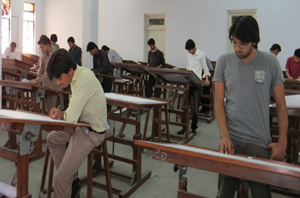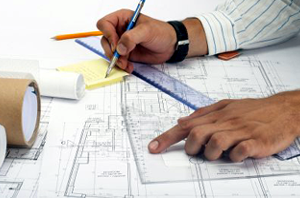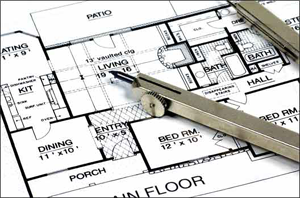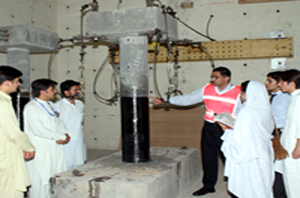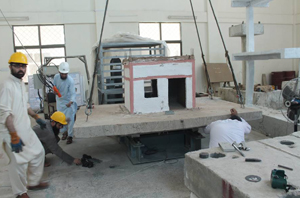Department of Civil Engineering Peshawar Campus
The courses of study leading to the Degree of B.Sc. Civil Engineering have been planned to offer a broad spectrum of Civil Engineering subjects. The curriculum lays emphasis
on subjects of structures, irrigation, geotechnical, transportation engineering,
environmental engineering and hydraulics. These courses include laboratory and design work.
The prescribed syllabi and examination standards compare favorably with the standard of under-graduate work developed in UK, USA and Canada.
In addition to course work, the final year students are required to work on a project under the guidance of a senior faculty members. Study tours and extension lectures are also arranged during the session for the benefit of the students.
Second or third year students during their summer break and final year students after passing the final examination in Civil Engineering may work with some recognized organizations, registered with PEC or government department or semi-government department to acquire practical
training of 800 hours for award of degree.
The Department of Civil Engineering offers a post-graduate programme with specialization in structural engineering, water resources engineering, environmental engineering, geotechnical engineering, transportation engineering and earthquake engineering.
The mission of Department of Civil Engineering is stated as under.
"To produce civil engineers having the knowledge, skills, and professional attitude that will enable them to develop innovative, safe, economical, and sustainable solutions for society."
The Program Educational Objectives (PEOs)
- The civil Engineering graduates will:
PEO-1.
"Exhibit flexibility and competency in bringing challenging projects to fruition by applying in depth engineering principles, analytical skills and state-of-the-art practices"
PEO-2.
"Practice integrity for the amelioration of civic/communal predicaments using eco-friendly standard protocols giving due consideration to hazard mitigaion and human well-being"
PEO-3.
"Pursue a strategy of long-term knowledge acquisition by keeping abreast of modern computational techniques and novel tools, so as to bring about discernible change."
PEO-4.
"Lead and work collaboratively, through sound communication, efficient resource management and effective public dealing, to achieve quality asssurance in diverse field and office environments"
- Academic Programs
- - B.Sc. Civil Engineering
- - M.Sc. Civil Engineering
- - Ph.D. Civil Engineering
Field Visits/Industrial Visits
Field visits to Civil Engineering projects of national importance are arranged for students. Each year students and concerned faculty members visit facilities/projects having high technical stature.
Survey Camp
Each year field course in surveying and leveling is arranged, for students of third year Civil Engineering for a period of three weeks for site experience. The course includes hands-on work in contouring, triangulation, fly leveling and road surveying. The survey is done with theodolites, levels and total stations. Survey plots are prepared with both manual and computer-aided drawings.
- List of Laboratories The Department of Civil Engineering is supported by well-equipped laboratories having state-of-the-art machinery and equipments. It has the following laboratories:
- - Concrete Laboratory
- - Hydraulics Laboratory
- - Soil Mechanics Laboratory
- - Highway engineering Laboratory
- - Material Testing Laboratory
- - Surveying Laboratory
- - Public Health Engineering Laboratory
- - Postgraduate Computer Laboratory
- - Undergraduate Computer Laboratory
- - Structural Engineering Laboratory
- - Earthquake Engineering Centre
- Research The faculty is involved in need-based target oriented research project. Some of the projects recently undertaken by faculty are related to:
- - Application of Slope Stability Techniques
- - Development of Attenuation Relationship for Pakistan
- - Microzonation Map for Different Cities of Pakistan
- - Seismic Strength Evaluation of Masonry Buildings
- - Evaluation of Indigenous Pozzolanic Materials
- - Insulation Properties of Porous Bricks Cavity Walls and Other Indigenous Materials
- - Shake Table Test on Reduced Scale Masonry and RC Structures
- - Advanced Composite Materials
- - Bridge Assessment (Collapse Analysis)
- - Earthquake Resistant Design
- - Low Cost Water Filters
- - Cost and Performance Optimization of Bridge Superstructures
- - Use of Waste Material in Construction of new Roads
- - Seismic Performance Assessment and Retrofitting of RC frame, low strength masonry, and steel moment frames.

